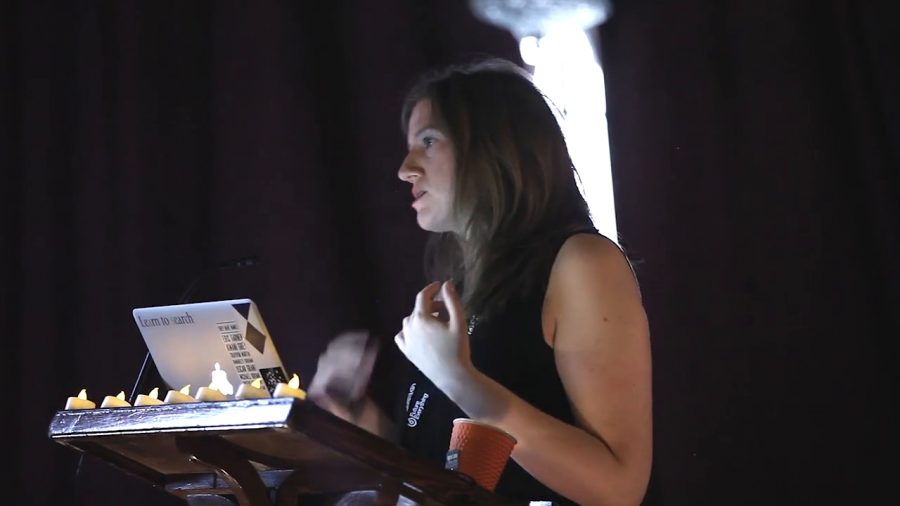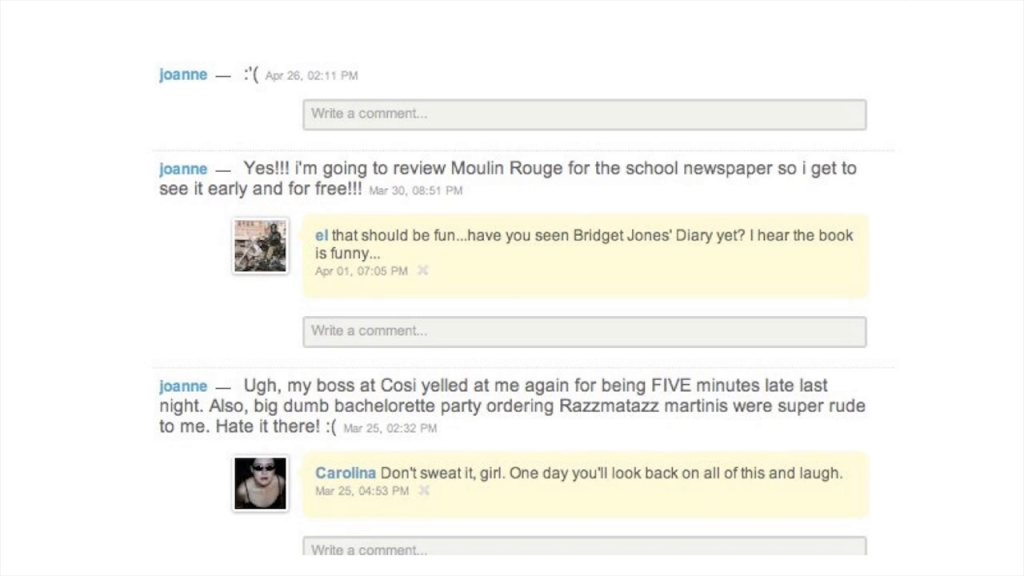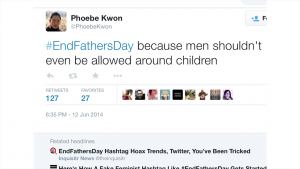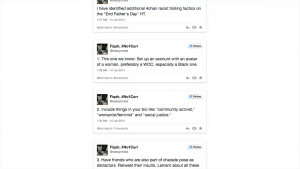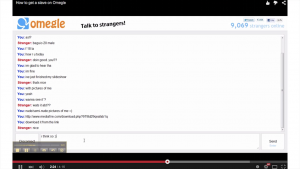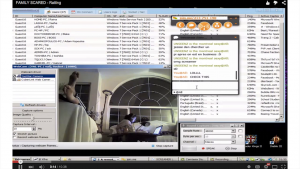Just to explain what you’re seeing on the screen, this is basically the only 60 seconds worth watching in The Ruins.
https://www.youtube.com/watch?v=ajMVBGbsL_E
Spoilers: that’s at the beginning of the film, so they do make it out of there. But the reason that I love this scene is that one, this is 2007 so a cell phone is the scariest thing that you could hear in a horror film because everybody in the audience is prepped to not have their phone go off or hear someone else’s phone go off. There were commercials that would air before a film that would be like, “Make sure your cell phone is shut off or everyone’s going to be really annoyed because it takes you out of the movie.” So that’s one reason I really love it.
But then I love that these vines…which this film, it’s so disappointing those 60 seconds are the only suspenseful bit of this film. The rest is just grisly disgustingness as opposed to suspense. But the idea of these plants that would mimic something that someone wanted so urgently as a cell phone to call for help, because that’s pretty much what we have on us at all times and expect to be able to do, that I thought would be a good way to introduce my talk, which is about hoaxes and spoofing and fear and how all of that relates to our reliance on technology.
My work often deals with automation, things like default settings and intimacy, expectations of authenticity. I think about these things because it’s hard to be a human and each of us is just doing the best that we can.
This is a project I did a few years ago where I asked some friends to join Friendster again ten years later and just perform as you were ten years ago. The idea for that was that we probably just met each other in the past few years and I don’t know what you were like ten years ago, so this is a good way to have an interesting interaction and get to know each other.
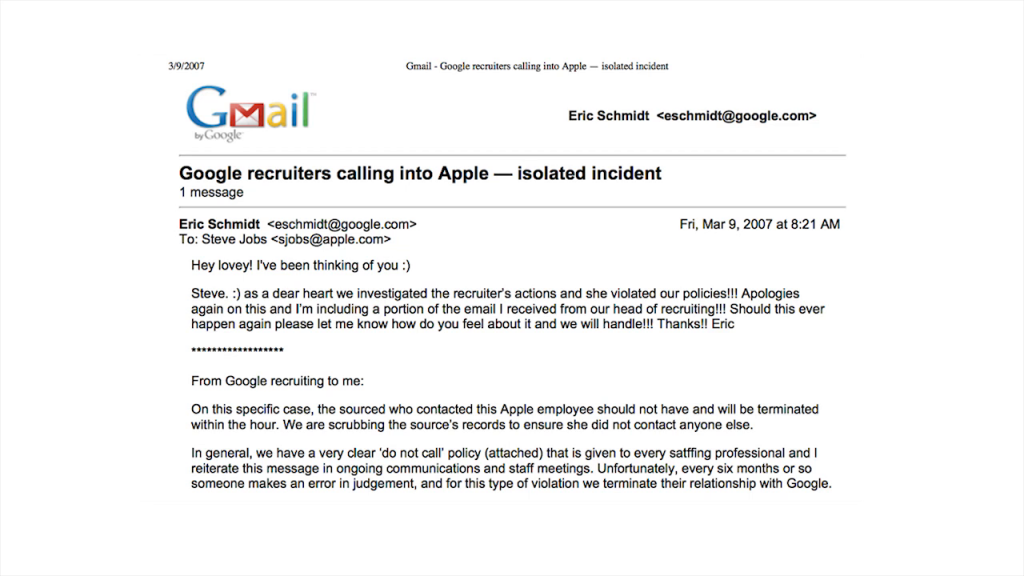
More recently I did this. It’s called the Emotional Labor GMail Extension, and that’s what happens after you press a button. It adds nice little things and nice words and exclamation marks and cheery language. I kind of explained the emotional labor extension in an essay as a response to increasingly automated personal correspondence, but there was actually something a little bit darker that I had in mind when I was putting this together. I was thinking about an actress who wrote a story in Vanity Fair about a more-famous actor who sexually assaulted her. But someone close to him said well, that obviously didn’t happen because she was nice to him at an award show. It’s just like, you know, people are just nice. You can perform being nice. It’s very, very easy. In fact, that’s a very good way to, if you are under attack, a smile sometimes works better than a sword to ward off an attack.
Spoofing emotions plays out very differently in our correspondence online because we have more vessels for the hidden parts of our identify, or vessels to pretend. I always refer to the much-quoted Oscar Wilde quote that “Man is least himself when he talks in his own person. Give him a mask, and he will tell you the truth.”
Something else that—oh gosh, I’m just going to say it. I didn’t want to say the word “creepy,” but here’s something that creeps me out. If I say creepy again, I did a bad job of this talk. So here is something that creeps me out. I’m creeped out by my reliance on devices just for being, for just being a person in the world and that this is how I access memories and live and communicate and go about my ordinary day, and it opens up room for gaslighting and algorithmic gaslighting.
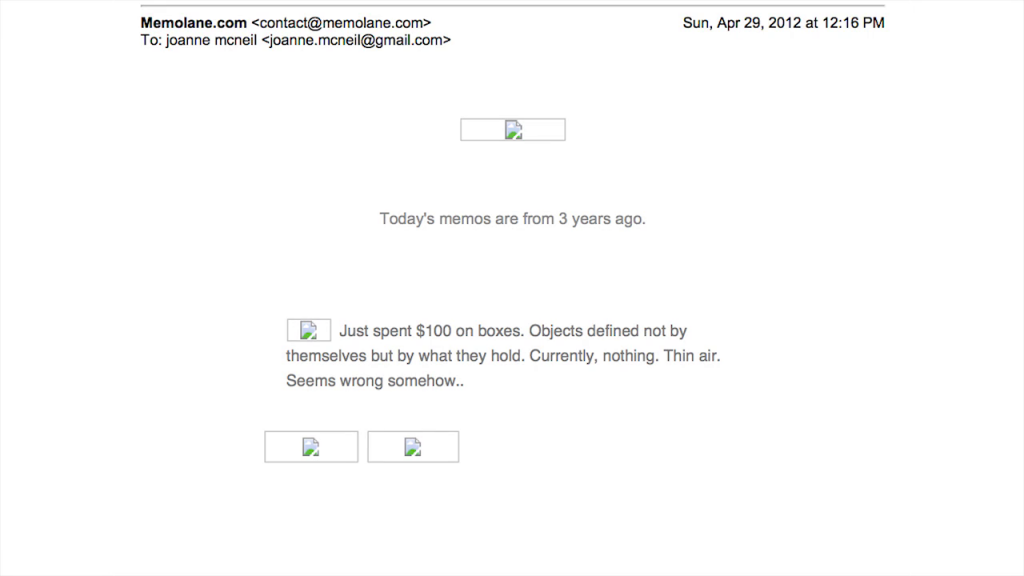
So I received this email and it really upset me because this was a service sort of like Timehop that would find things from your timeline and send it back to you on the same date two or three years later. I got this email and I’m looking at it and I’m like, “I did not tweet that.” This service is telling me, because it sends me my past tweets from two or three years ago, and I’m just, “What is going on here. I know I did not spend $100 on boxes, or did I?” I was really really upset because it sort of sounds like me but it’s definitely not me, and I had that eerie feeling that all of a sudden some memory is being implanted. I went into Inspect Element and it turns out no, I didn’t twee that. I faved the tweet, and it was the day that I got that message was probably when Memolane started included things that you’d faved, but they wouldn’t have any kind of design elements that specified that it was not my tweet, it was someone else’s.
But I bring this up because I think that normally when we’re in a room together, you have all these sensory details that you can accumulate to get a sense that something is awry, and on a screen just getting an email, I can’t necessarily read something as inauthentic or not the same way. It’s very possible that if it had been something as specific as a $100 in boxes I might have just been like, “Oh yeah, I don’t remember saying that. But that must’ve been me, I dunno.” Or I might not have even got it.
I noticed (you guys probably noticed this, too) the first people to tweet on the hashtag…hey, there. This is a pretty typical experience now, that when we contrast an iPhone to a TV, your sense of control over your experience is so enormous with Internet. You have control over how you’re navigating, how you’re going through channels, and going to web sites, as opposed to a remote that would just flip through different shows. That control that we expect when we’re using a computer, to have someone invade that is a particular kind of scary.
So I’m going to talk about things that scare me on the Internet, things that I’m afraid of, and things that maybe we can’t yet make a horror film. We definitely can’t make a film as bad as The Ruins about this stuff, but I would say it’s a lot scarier than The Ruins, which is just gross.
This is very upsetting. I’m showing the tweets that are not really horribly racist or disgusting or just upsetting, because it’s breakfast time and some of us are jetlagged. I don’t want to get really deep into what happened here. But last June there was a concentrated campaign of individuals from what was 4chan; they’re probably all on 8chan now. They sensed that there was this kind of split within the communities of women that talk about feminism on Twitter, and they were exaggerating how women that are kind of marginalized from a mainstream feminist discourse…they sensed that they were being marginalized.
So they created a bunch of fake feminists on Twitter that are women of color and they used ridiculous language. It started with this fake hashtag #EndFathersDay, and it was just exaggerated parodies of what they think feminists would say. It’s so upsetting, too, because this is the wonders of peer production in full effect, not for any social good but for literally chasing women of color off of Twitter. That’s what’s happening here. The Wikipedia effect of 2007…this is what’s happening.
There were two women in particular that already have a community and a network on Twitter that they were communicating [with] and knew each other, and seeing new people who had funny language, that sense of something being awry… Because sometimes it was subtle. You’d see the 4chan boards, and they’d tell each other how to be really authentic, because they actually were trying to mimic these women. They even took some of their avatars, and if you had a screen name with an “l” in it, they’d do a capital “I.” You know, the trick that everyone does. They were trying very very hard to mimic these women.
So two Twitter users, @sassycrass and @so_treu, created another hashtag called #YourSlipIsShowing that would find the people who were inauthentic and were trying to create problems within this community. Just to make sure that this is kind of clear, the plan from 4chan really was to have it so that if a woman of color just had a general conversation with a feminist who’s mainstream and white and has access to a platform, that she would be skeptical. It really was that disgusting. It’s just vile, and I don’t want to make it sound like a kooky, “Oh wow, they were stealing identities.” No, it’s not that. It’s actually disgusting. I’m not bringing up the worst screengrabs.
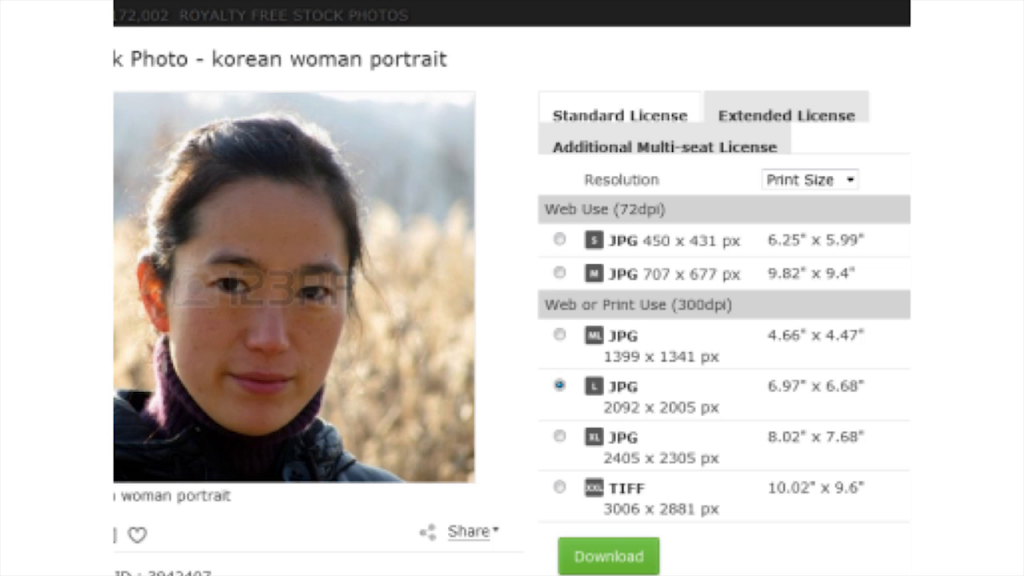
The thing that tipped people off is there would be some kind of slang that was just stupid, like “We’re the people of oppression.” The language was just a little bit awry, and so you can see here this was one of the fake profiles, and you could find through image search pretty easily that this is just a stock photo. But some of them, their avatar photos were stolen, and it was people that were active in another hashtag campaign called #SolidarityIsForWhiteWomen.
The consequences of this were really frustrating because the people who were targeted, who don’t have access to major publications or institutional backing to necessarily support them when something like this is happening…
To throw it out there, if you want to see more of what was happening there, [safetwitterspaces.tumblr.com is] at least a good place to start. Also Sydette Harry wrote an essay called “Everyone Watches, Nobody Sees”. That was an essay on Model View Culture about how this really stifled the conversation. And it’s really unfortunate that when this happened, we didn’t create a broader conversation, because a few months later, Gamergate happened and it was the same people, pretty much.
Something else that really frightens me, because I’m just saying very literally the things that frighten me, a particularly vile corner of YouTube. Recordings of voyeurisms through the remote access tool, spying through web cams, messing around leaving notes for someone, moving a cursor around to spook them. Even the language in this community is just appalling. If they’ve captured your computer, they might refer to you in their chat rooms as their slave. It’ disgusting. You can see there are videos like this that say things like, “Family scared.”
This is something that is becoming kind of an everyday worry, that while we have so much reliance upon these devices, we also have this threat that someone can get in there. It’s not like your head. It’s not your headspace. These are memories that you are slightly alienated from. So it’s got to the point that even if you go to domestic violence web sites, there will be a little pop-up that says hey by the way, someone might have a keylogger or someone might be tracking your activity.
Again, it’s breakfast time. I’m sorry to start out this kooky conference really dark. But to end on some positive note, I think this is a moment right now where we’re seeing… Second-wave feminism was all about building these institutions like rape crisis hotlines, domestic violence shelters. I think what we’re in right now is both defining the problem (which is why this talk was a little bit difficult for me because it’s hard to create narratives around what is happening) and also building institutions that understand the problem and have strategies and tactics to resolve this. Because if you’re being abused in this way and you’re also trapped by the language that you need a map that you can share with someone why this hurts, why this has to stop… The most essential thing, though, is just to walk into the situation and say that I did not agree to this. I did not invite this. I did not ask for this. This is what I wanted from this machine and this is what I wilt.
Thank you.
Further Reference
The Haunted Machines site, where Joanne has a further short piece on The Ruins, “Fear of Zero Bars.”
Dedicated page for Haunted Machines at the main FutureEverything site.
